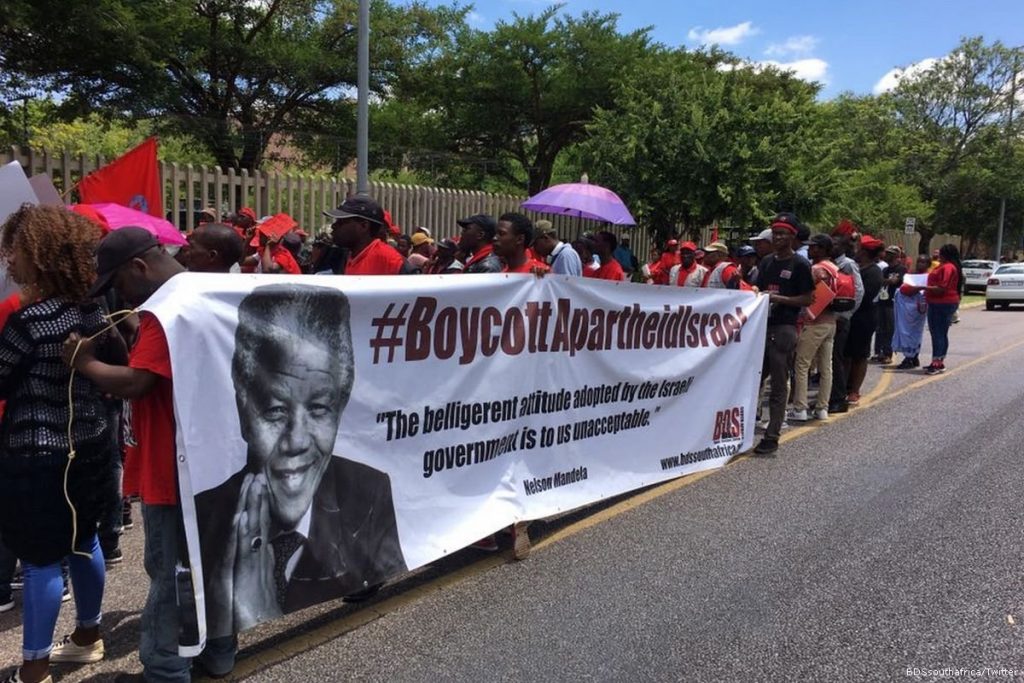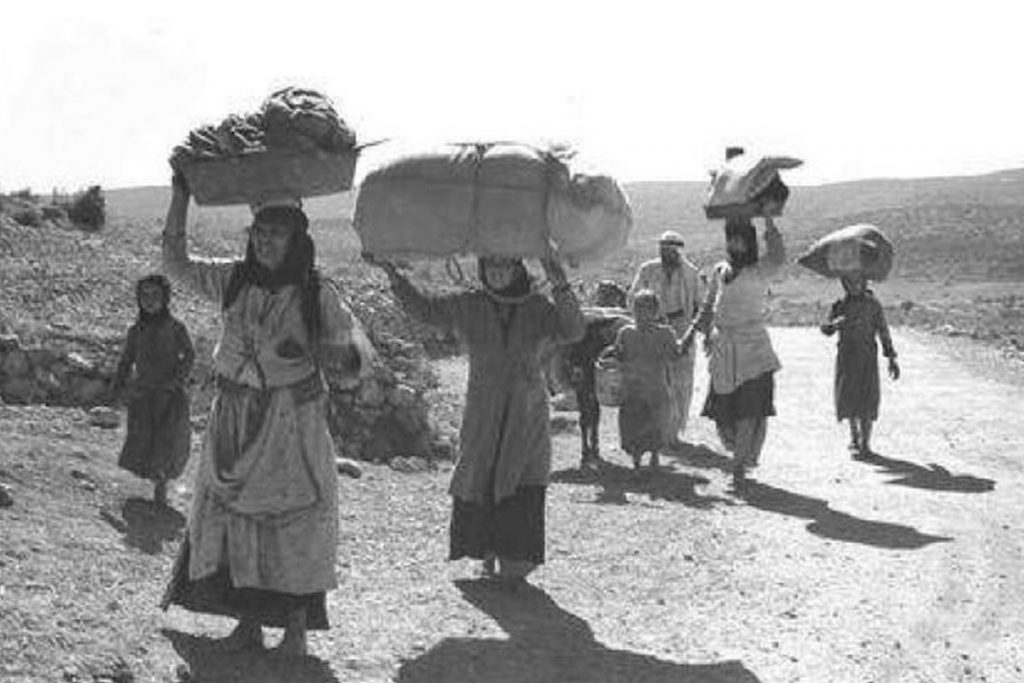February 27, 2018 at 3:01 pm | Published in: Africa, Article, Israel, Middle East, Opinion, Palestine, South Africa

This year, the 14th Israeli Apartheid Week will be commemorated in over 200 cities around the world. Commonly referred to as IAW, as a South African I do not think that a more apt name could have been chosen to highlight the atrocities carried out by the Zionist regime on a daily basis.
Whenever the plight of the Palestinian people is compared with Apartheid, there are more than a few strong objections from the pro-Israel community. The very idea that such a comparison can be made repulses those who support the oppressive system run by the Israeli government, and passionate statements against such remarks are sure to be vented. However, if we analyse the situation from a historic and non-biased view, the similarities between Apartheid South Africa and the situation in Israel are startling and simply cannot be ignored.
South Africa to cut diplomatic ties with Israel
The restrictive policies applied in the old South Africa are comparable to those presently carried out in occupied Palestine. We know that the government implemented the Group Areas Act here in South Africa, and non-white people were forced to live in specific areas while families were torn apart; all movements were restricted through the use of pass books. A similar policy is seen in Israel, where Jewish settlements are established within and between Palestinian cities and then encircled by concrete walls and barbed wire, completely cutting off Palestinians from other family members and even basic necessities such as access to hospitals. If they need to reach any destination outside of their “homeland”, their papers must be approved by Israeli soldiers, a process which often takes hours, and approval isn’t always given. Countless horror stories have been reported where Palestinians, often children and the elderly, have suffered great deterioration to their health or even death due to these “security” checks.
We can also evaluate the specific repressive policies employed by both governments. The Apartheid government worked in a very orderly and structured way. The arrest and detention of political and community leaders was the order of the day and suitable steps were always taken in order to justify the government’s actions. This is precisely how the Israeli government works. It announces that it will “terminate” Hamas leaders or young Palestinians resisting occupation, and truth be told we are then sure to hear of the killing of a leader or ordinary person soon afterwards. Teenagers who are suspected of “terrorist” activities are dragged savagely from their homes in the middle of the night, and must usually endure torture and interrogation without due procedure.
South Africa tells UN: Israel is only apartheid state in the world today
The most notable and current example of this is 17-year-old Ahed Tamimi, who is spending her third month in an Israeli prison for resisting the unjustified storming of her home by Israeli forces. If these young Palestinians are lucky, they will be released — months or even years later — without being charged and tried, but definitely changed for the rest of their lives.
South Africa’s National Party government oversaw a rapid militarisation of society and the army was sent into the non-white townships regularly. Having had the privilege of visiting Palestine myself recently, I can testify to the fact that the entire Israeli society is based around the military. Israeli forces patrol everywhere and, under the illusion of ensuring security, soldiers keep a close and suppressive eye on the Palestinians, monitoring their every move. PW Botha’s government also became famous for its violent suppression of protest marches, and when I witnessed powerful Israeli tanks encroaching on a group of adolescent Palestinians trying to repel them with stones, it is as if I was witnessing history repeat itself.
I believe that the similarities are so undeniable, that it seems as if the Israeli government has used the Apartheid laws as the basis for its oppressive rule over the Palestinians living under occupation. It is correct to say that the occupation of Palestine by the nascent state of Israel in 1948 was indeed a Nakba, a Catastrophe.

Through the implementation of the Apartheid-like laws we see imposed against the Palestinians today and the countless massacres of innocent civilians that took place in order to establish Israel, it is safe to assume that the state was not “created” by the UN. Instead, it was and remains built upon the terrorism of the Zionist militias and, later, the Israel Defence Forces. It is time for the world to recognise the need to reject Israel as a legitimate member of the supposed “free-world” and support the rights of all Palestinians, including their right to return to the land taken so ruthlessly from them, as well as their basic human rights.
The first Prime Minister of Israel, David Ben Gurion, said in 1948: “We must do everything to ensure that they [the Palestinians] never return.” Assuring his fellow Zionists that Palestinians will never come back to their homes, he claimed that, “The old will die and the young will forget.”
I wish Ben Gurion was still around, if only to see that, in 2018, young Palestinians have not forgotten, as he’d hoped, and nor have justice-loving people around the world forgotten the catastrophe imposed upon the Palestinians. It is for this reason that Israeli Apartheid Week will continue to be commemorated until truth, justice and human rights are achieved for everyone in occupied Palestine.
The views expressed in this article belong to the author and do not necessarily reflect the editorial policy of Middle East Monitor.